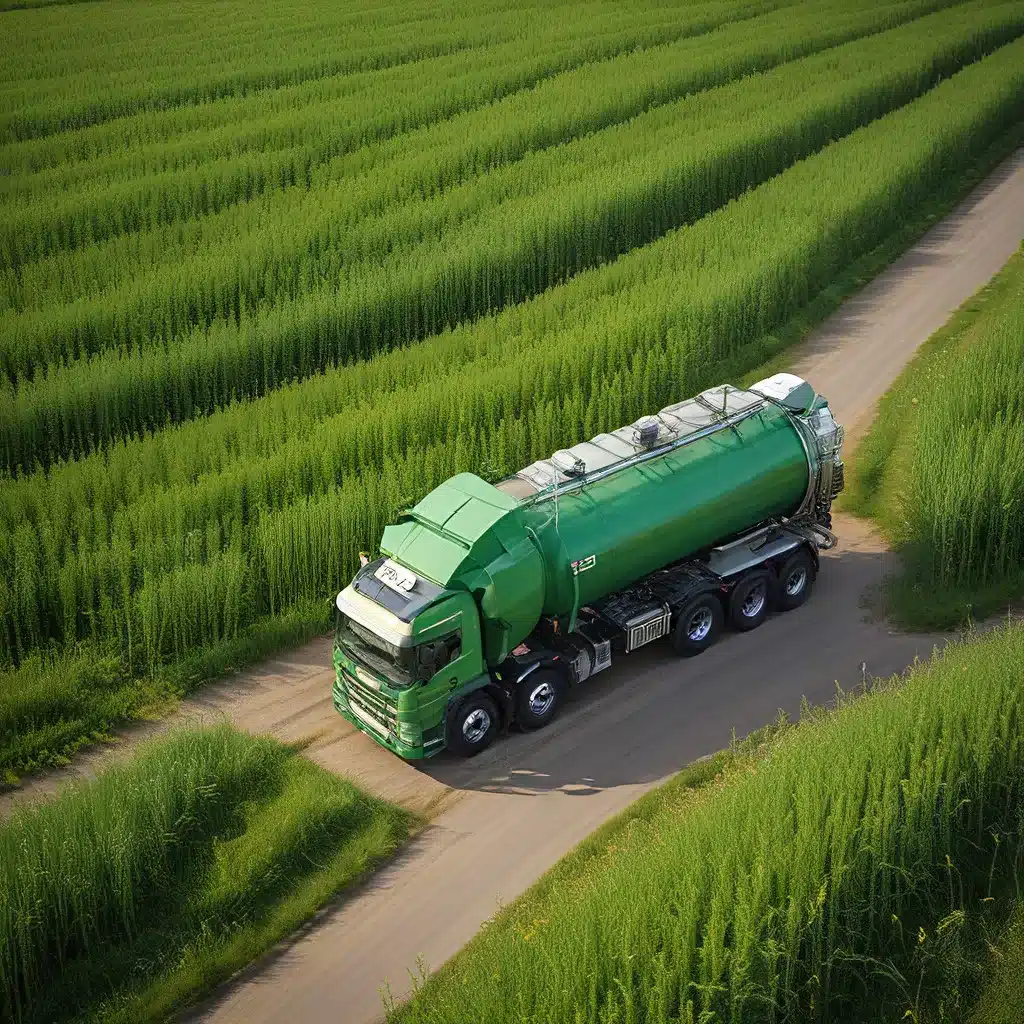
As we navigate the complexities of our rapidly evolving energy landscape, one solution stands out as a beacon of hope – the power of biofuels. These renewable, carbon-neutral fuels hold the potential to transform the way we power our world, paving the way for a cleaner, more sustainable future.
In a world consumed by the urgent need to address climate change, the role of biofuels cannot be overstated. They offer a unique opportunity to reduce our reliance on fossil fuels, while also creating new economic opportunities and driving innovation across industries. But the true power of biofuels lies in their versatility and their ability to seamlessly integrate with our existing energy infrastructure.
Unlocking the Potential of Biofuels
Imagine a future where the fuel in your car, the power that heats your home, and the energy that propels our planes, ships, and industries all come from renewable, biobased sources. This vision is not as far-fetched as it may seem. Thanks to advancements in biofuel technology, we are closer than ever to making this dream a reality.
One of the key advantages of biofuels is their ability to leverage our existing infrastructure. Unlike other renewable energy sources that require the construction of entirely new systems, biofuels can be seamlessly integrated into our current energy distribution networks. This means we can start reducing our carbon footprint without the need for massive, costly overhauls.
But the benefits of biofuels extend far beyond their practical applications. These fuels also offer a unique opportunity to support local economies and create new green jobs. By sourcing feedstocks from agricultural and forestry waste, we can drive economic growth in rural communities while simultaneously reducing greenhouse gas emissions.
Diversifying the Biofuel Landscape
As the demand for renewable energy solutions continues to grow, the biofuel industry has responded with a diverse array of options. From ethanol and biodiesel to advanced biofuels like renewable natural gas and sustainable aviation fuel, the choices available to consumers and businesses are rapidly expanding.
| Biofuel Type | Key Characteristics | Applications |
|---|---|---|
| Ethanol | – Produced from fermentation of sugars and starches – Can be blended with gasoline to reduce emissions |
– Automotive fuel – Industrial applications |
| Biodiesel | – Derived from vegetable oils, animal fats, or recycled cooking oils – Can be used in diesel engines with little to no modification |
– Diesel fuel for transportation – Heating oil |
| Renewable Natural Gas (RNG) | – Produced from the capture and processing of methane from organic waste – Can be directly injected into natural gas pipelines |
– Heating and power generation – Transportation fuel for natural gas vehicles |
| Sustainable Aviation Fuel (SAF) | – Made from waste oils, fats, and other renewable feedstocks – Able to reduce lifecycle greenhouse gas emissions by up to 80% |
– Jet fuel for commercial and military aviation |
As you can see, the biofuel landscape is diverse and ever-evolving. Each type of biofuel offers unique advantages and applications, catering to the specific needs of various industries and sectors. This diversity is essential for creating a truly comprehensive and resilient renewable energy ecosystem.
The Road to Widespread Adoption
While the potential of biofuels is undeniable, the path to widespread adoption is not without its challenges. Factors such as policy support, infrastructure development, and technological advancements will all play a crucial role in determining the future of these sustainable fuels.
One of the key drivers of biofuel adoption has been the Inflation Reduction Act, a landmark piece of legislation that provides significant incentives and funding for the production and use of biofuels. By supporting the scale-up of biofuel production and the integration of these fuels into existing energy systems, the Act is poised to accelerate the transition to a cleaner, more sustainable future.
But the road ahead is not without its obstacles. The scale-up of advanced biofuel production, the development of robust distribution networks, and the education of consumers on the benefits of these fuels will all require sustained efforts and collaboration across the public and private sectors.
Embracing the Biofuel Revolution
As I reflect on the promise of biofuels, I can’t help but feel a sense of excitement and optimism. These renewable, carbon-neutral fuels hold the power to transform our energy landscape, reduce our carbon footprint, and create new economic opportunities for communities around the world.
But the true beauty of biofuels lies in their ability to seamlessly integrate with our existing infrastructure. Unlike other renewable energy sources that require costly and disruptive overhauls, biofuels can be gradually introduced into our current energy systems, allowing for a smooth and cost-effective transition.
So, as we look towards a future where sustainability and innovation are the driving forces behind our energy choices, I encourage you to embrace the biofuel revolution. Explore the diverse array of options available, stay informed on the latest policy and technological advancements, and join me in ushering in a new era of clean, renewable energy.
The time is now to leverage the power of biofuels and build a cleaner, more sustainable tomorrow. Who knows what other exciting innovations and discoveries await us on this journey? The possibilities are endless, and the future is ours to shape.
Discover how Firewinder can help you navigate the world of renewable energy solutions and be a part of the biofuel revolution.

